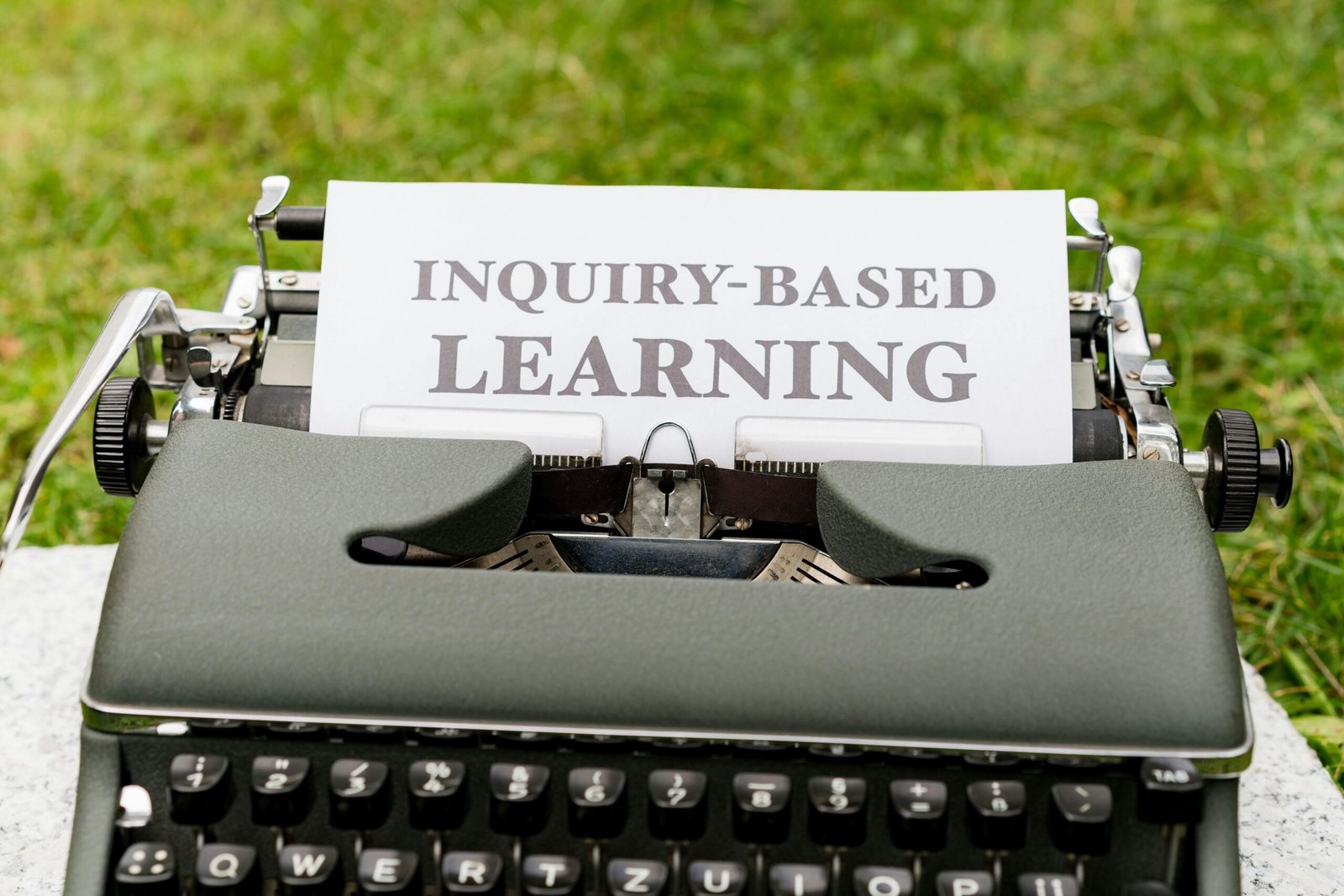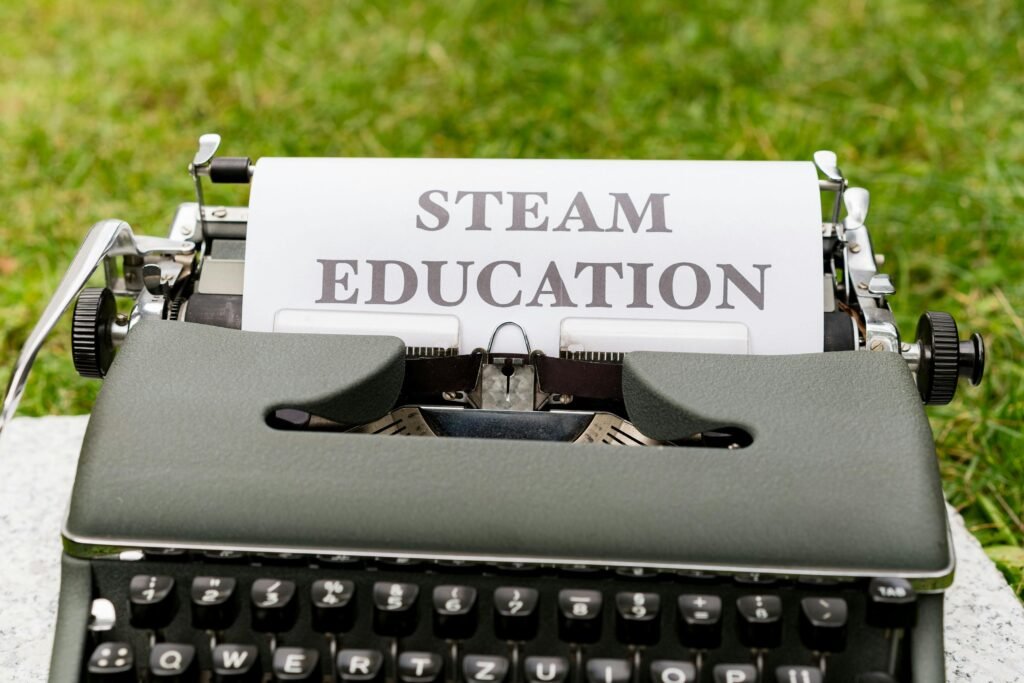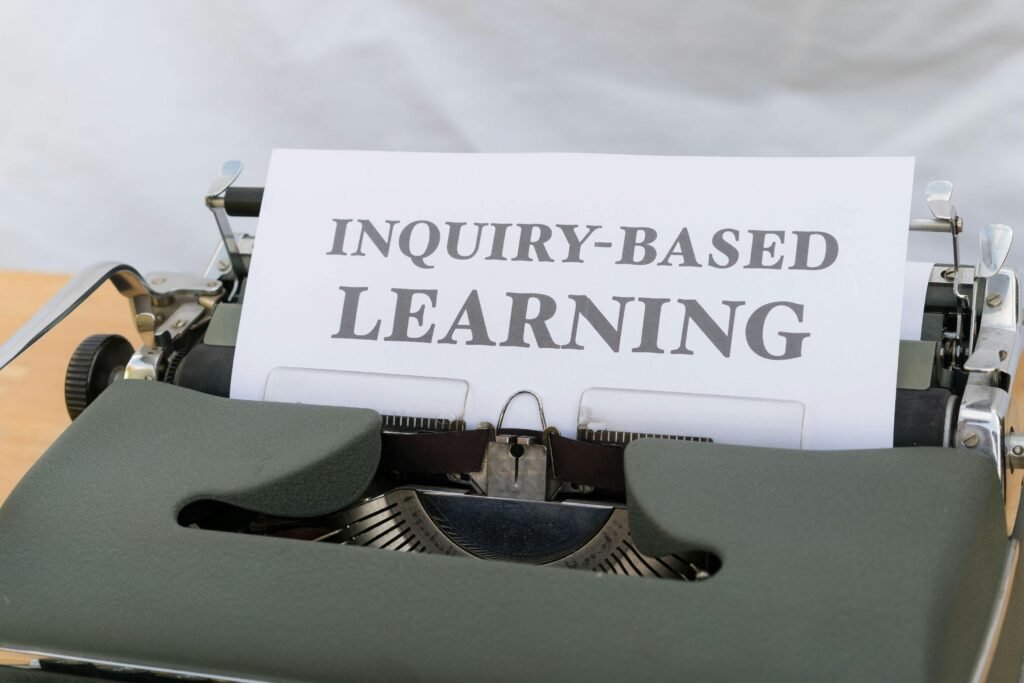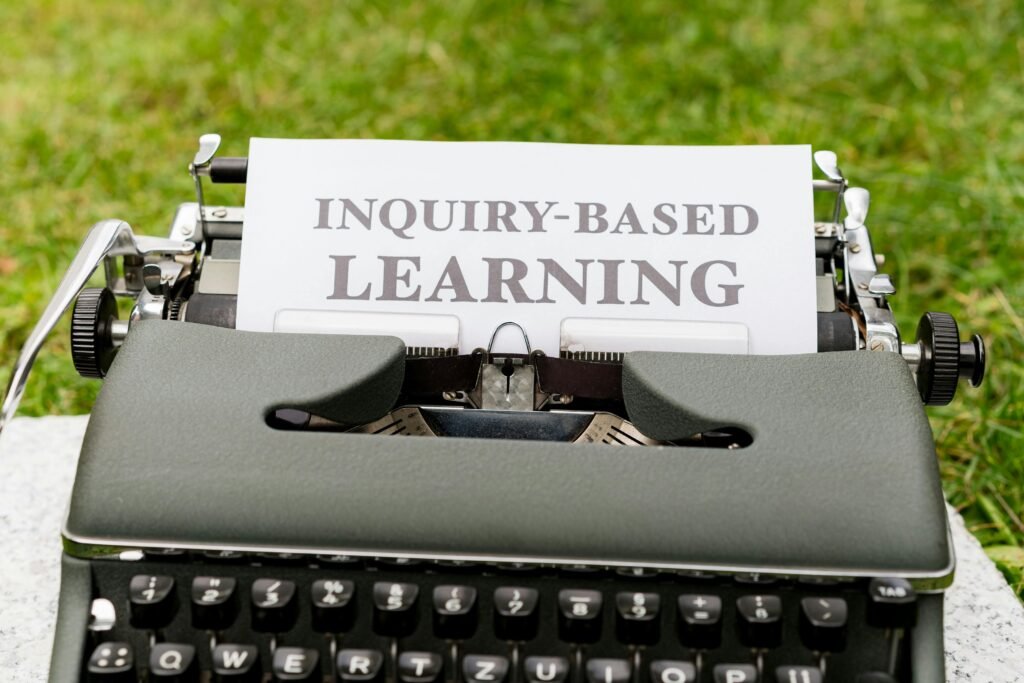
Imagine discovering a powerful tool that can open doors to deeper understanding, foster connectivity among people, and fuel innovative thought. This pivotal instrument is something you’re already familiar with and have used countless times: the question. “The Art of the Question” is an invitation to explore how honing your questioning skills can transform conversations, elevate your professional interactions, and enrich your personal life. By fine-tuning the way you ask questions, you embark on a fascinating journey that enhances your communication and critical thinking, leading to more meaningful engagements across all areas of your existence.
Understanding the Power of Questions
When you interact with others, questions are fundamental to the exchange of ideas and information. They allow you to delve deeper into the minds of others and the world around you. But what makes a question truly powerful?
Defining a ‘good’ question
A ‘good’ question, you’ll find, is one that provokes thought, elicits more than a simple yes or no answer, and leads to further questions and exploration. It’s a tool that can unlock new knowledge, challenge assumptions, and spark curiosity. When you ask a good question, you are often seeking to understand complex issues or gather insights that aren’t immediately obvious.
The psychological and social impact of questioning
Questions are much more than requests for information. They are a social and psychological tool that can influence behavior and attitudes. When you ask questions, you engage in an act of openness and vulnerability, showing that you value someone else’s views and intelligence. Questions can enhance social bonds by fostering a collaborative spirit, and they can make others feel heard and understood, which is integral to building trust.
Questions as a tool for empowerment
For you and others, questions have the power to unlock your potential and empower you to make better decisions. By framing your thoughts as questions, you can approach problems from new angles and find innovative solutions. Questions can also democratize discussions, giving everyone a voice and the opportunity to contribute. It’s through this inquisitive processor that empowerment and change become possible.
Types of Questions and Their Uses
Questions come in all shapes and sizes, each serving different purposes and eliciting unique responses.
Open-ended vs close-ended questions
You’ll notice that open-ended questions invite elaboration, encouraging a comprehensive and thoughtful response, while close-ended questions typically allow for short, direct answers. Use open-ended questions when you’re looking to generate discussion and explore a topic in depth. In contrast, close-ended questions are handy for obtaining specific information or making quick decisions.
Rhetorical questions and their influence
A rhetorical question is a special kind of question that you don’t expect an answer to; it’s a device used to emphasize a point or provoke thought. As such, it can be incredibly influential, subtly guiding the listener to consider a specific viewpoint or conclusion without making direct assertions.
Leading questions and the art of suggestion
When you want to subtly steer someone toward an answer or perspective, you might use a leading question. These questions contain an implied assumption and can be useful in persuading or influencing others. However, it’s important to use them judiciously, as they can also introduce bias and unfairly shape the conversation.
Reflective questions for deeper understanding
Reflective questions invite individuals to look inward, assess their experiences, and contemplate their thoughts and feelings. By asking reflective questions, you encourage deeper understanding and personal growth. These are particularly useful in educational, therapeutic, or coaching settings.

This image is property of images.pexels.com.
The Historical Significance of Questioning
Throughout history, questions have been pivotal in driving change and progress.
Socratic questioning: A philosophical perspective
The ancient Greek philosopher Socrates is renowned for his method of questioning, which aimed to tease out understanding and knowledge through systematic doubt and inquiry. Socratic questioning still resonates in modern educational and philosophical practices, advocating for critical thinking and continuous questioning.
The role of questioning in scientific discoveries
Many scientific breakthroughs began with a question. Asking ‘why’ or ‘how’ has led to experiments, observations, and ultimately, new knowledge. Scientific methodology itself is built upon the structure of posing and testing hypotheses – robust questions that seek to explain phenomena.
Questions that have changed history
Some questions have the power to shift paradigms and alter the course of history. Think of Galileo asking if the Earth truly was the center of the universe, or Rachel Carson questioning the impact of pesticides on the environment. These inquiries have sparked revolutions, both technical and social, underscoring the importance of challenging the status quo.
The Role of Questions in Education
The act of questioning is a catalyst for learning and an important aspect of education.
Encouraging critical thinking in students
By incorporating questions into your teaching, you encourage students to think critically and independently. A well-placed question can challenge them to analyze, evaluate, and synthesize information, rather than simply accepting it at face value.
Question-based learning models
Inquiry-based learning models capitalize on the natural curiosity of students, using questions as the basis for exploration and learning. This approach places the responsibility of learning on the students, encouraging them to seek out answers and engage actively with the material.
Evaluating understanding through questioning
Questioning is a powerful tool you can utilize to evaluate a student’s understanding. By asking them to explain concepts in their own words, you can assess their level of comprehension and identify any areas that require further clarification.
The shift from memorization to inquiry-based education
Education is moving away from rote memorization and towards an inquiry-based approach, where you focus on developing a student’s ability to question, investigate, and think deeply. This shift acknowledges that the ability to ask the right questions is more valuable than the capacity to recall facts.

This image is property of images.pexels.com.
Questioning in the Workplace
In a professional setting, the art of questioning is equally relevant.
The function of questions in meetings and discussions
During meetings and discussions, questions serve as a means to draw out opinions, clarify points, and ensure that all voices are heard. They help in uncovering hidden issues and getting to the heart of the matter.
How questions can shape company culture
The types of questions encouraged and valued in an organization can significantly influence its culture. Encouraging open, exploratory questions fosters a culture of innovation and continuous improvement, while penalizing questions might discourage communication and creativity.
Asking the right questions for effective problem-solving
Effective problem-solving often relies on asking the right questions. By systematically questioning the problem from all angles, you can uncover underlying causes and craft more comprehensive solutions.
Incorporating questions into leadership and management strategies
As a leader or manager, employing questions rather than directives can empower your team and encourage their involvement in decision-making processes. This not only increases engagement but also leads to collective intelligence guiding the direction of the team and organization.
The Art of Crafting Questions
The way you phrase and present questions can heavily influence the responses you receive.
The importance of clarity and specificity
Questions need to be clear and specific to yield useful answers. Vague questions can lead to confusion and misunderstanding, whereas well-defined questions guide the respondent and facilitate a useful reply.
Balancing simplicity and depth
The most skillfully crafted questions strike a balance between simplicity and the potential for depth. They are easy to understand but deep enough to allow for substantive responses. It’s about finding a harmony that doesn’t overwhelm but also doesn’t underwhelm.
Techniques for forming engaging and thought-provoking questions
To form engaging questions, consider your audience, the context, and what you wish to achieve with the question. Use creative question stems and consider the flow of conversation. Open-ended questions beginning with ‘what,’ ‘how,’ or ‘why’ often lead to more elaborate and insightful answers.
Avoiding ambiguity and confusion
Ambiguity is the enemy of a good question. Aim for precision and conciseness, avoiding double-barreled questions that touch on more than one issue at a time, which can lead to unclear answers.

This image is property of images.pexels.com.
Active Listening and the Feedback Loop
A question is only as good as the attention given to the response.
The relationship between questioning and active listening
Active listening is a key component of effective questioning. It involves being fully present and paying close attention to the speaker’s words, tone, and body language. By actively listening, you show that the answers matter and that you are engaged in the dialogue.
How to use questions to demonstrate understanding
You can use questions not only to obtain information but also to show that you understand or seek clarification. Paraphrasing a speaker’s point and forming a related question demonstrates consideration and attentiveness.
Feedback as a response to questions
Feedback is essential in any exchange involving questions. It allows you to gauge whether the question was understood as intended and whether the answer provided meets the needs of the inquiry. Responding with feedback creates a dynamic and interactive conversation.
Adjusting questions based on feedback for clarity
Sometimes, the feedback you receive can indicate that your question wasn’t clear or missed the mark. Use this as an opportunity to refine your question, making it clearer and more focused on eliciting the desired response.
Questions in Personal Development
Questions are a vital tool in your personal development journey.
Self-inquiry for personal growth
Asking yourself challenging and reflective questions can lead to valuable personal insights and growth. Questions like ‘What am I truly passionate about?’ or ‘What is holding me back?’ can catalyze self-discovery and lead to transformative change.
The role of questions in goal setting and motivation
The right questions can help you to set clear and achievable goals. By querying your intentions and delineating the steps required to reach your objectives, you create a roadmap for success and maintain the motivation to achieve it.
Overcoming challenges with strategic questioning
When faced with challenges, consider asking yourself questions that frame the situation as an opportunity for learning and growth. Inquiring about what you can learn from the experience and how you can adapt will empower you and turn obstacles into stepping stones.
Reflective questions for self-assessment
Regularly asking yourself reflective questions is a powerful way to assess your progress and recalibrate your direction. Questions like ‘Am I living according to my values?’ and ‘What have I improved on recently?’ help keep you aligned with your aspirations and accomplishments.

The Impact of Questioning in Relationships
Questions play a critical role in establishing and nurturing relationships.
Building rapport through thoughtful questions
Thoughtful questions show genuine interest in the other person and can help build rapport. By inquiring about someone’s experiences, thoughts, and feelings, you establish a connection that forms the basis of a trusting relationship.
Resolving conflicts with the help of questions
Asking questions can be a non-confrontational way to delve into the root causes of conflicts. By exploring the perspectives of all parties involved through questions, you can uncover misunderstandings and work collaboratively towards a resolution.
Deepening connections by understanding others’ perspectives
To deepen your connection with someone, strive to understand their perspective. Inquire about their views and experiences without judgment. This openness fosters deeper emotional bonds and mutual understanding.
The delicate balance of questioning without prying
While questions can draw people closer, it’s important to respect boundaries and avoid prying. Knowing when to ask and when to refrain is crucial; it demonstrates respect and sensitivity to the other person’s comfort level.
Questions and Technology: The New Frontier
In our increasingly digital world, questions have taken on new forms and functions.
How digital assistants are programmed to handle questions
Digital assistants like Siri, Alexa, and Google Assistant have been programmed to interpret and respond to a variety of questions. Understanding human queries, including nuanced or ambiguous ones, remains a significant challenge in the field of artificial intelligence.
Questions in user experience (UX) design
In UX design, questions are essential for understanding the needs and behaviors of users. Designers often ask targeted questions to gain insights that inform design decisions and improve the user experience.
The significance of search queries and their impact on information access
In the age of search engines, the questions you type into a search bar can determine the kind of information you access. Search queries not only reflect individual needs and interests but also shape the way information is sorted and presented.
Future trends: AI, virtual reality, and questioning
Looking toward the future, questioning will become even more intertwined with technology. Advances in AI and virtual reality will potentially transform how you ask questions and interact with machines, enabling more intuitive and personalized responses.
The art of questioning is a timeless and essential skill that will continue to empower you in various aspects of life. Whether you’re exploring the world, engaging with others, or seeking personal growth, remember: it all starts with a question. Keep asking, and you’ll keep discovering.
